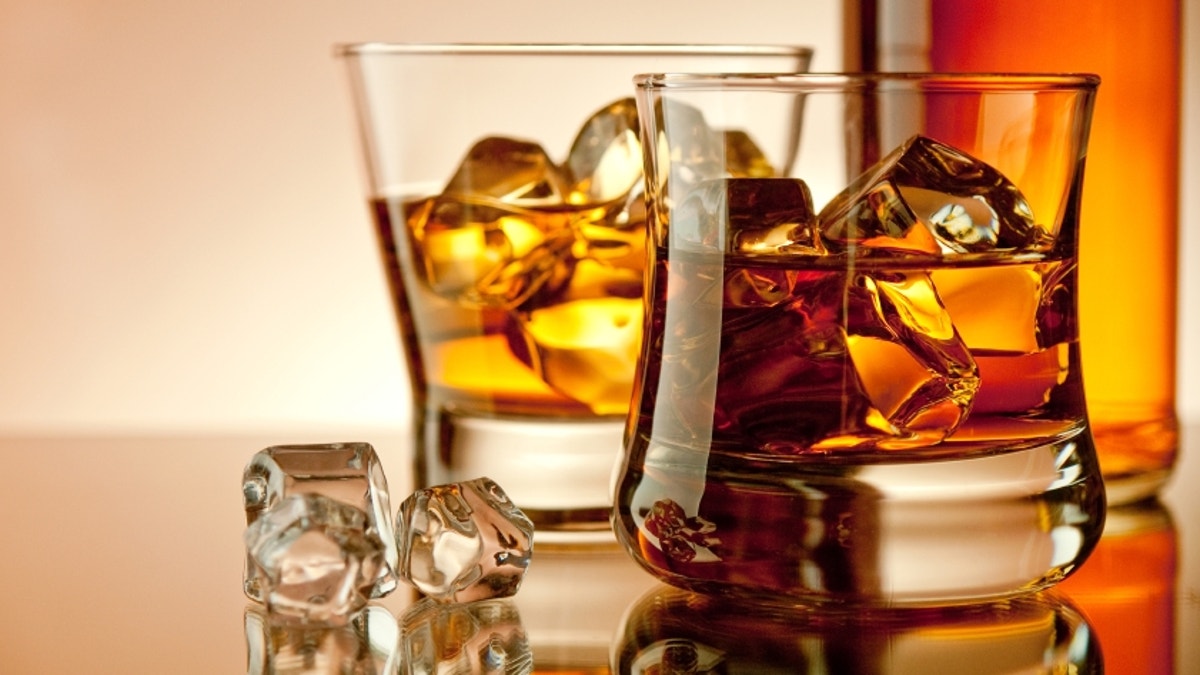
Old fashion whiskey on the rocks
Spartan mothers reputedly would tell their sons as they went off to war: "Come home with your shield, or on it!" I did not impart such encouraging words to my son when he journeyed across the Pond, but I did admonish: "Come home with a bottle of whisky, or not at all."
Two years ago, he and a high school pal spent a week and a half traversing Scotland. They went for the usual reasons: family history, collegial adventures, and spreading their wings of independence. Having frequented the "auld country" many times, I was able to offer suggestions to their itinerary. But I insisted they take a distillery tour. Where else but Scotland can one learn the distillation process and experience the unique varieties that are single malts? If they followed my advice, I'd feel I'd done my job-and get that bottle of whisky to boot.
As you've probably guessed, I have a love for all things "uisge beatha." I believe whisky is a living testament to the human spirit, embodied in enterprise and ingenuity. It symbolizes the spontaneous order of free markets and the unplanned innovations they yield. Its story is one of happy accidents, unforeseen circumstances, and twists of fate that created a spirit made perfect by its very imperfections.
These flaws tell a story. Whisky once sanitized drinking water and offered a means to utilize available raw resources in an environment of extreme scarcity. Farmers preserved their excess crop yields by distilling it into whisky and used the product as a unit of exchange. You read that right-whisky once was a commonly accepted currency. In fact, America's own Whiskey Rebellion may have been prevented had the government allowed citizens to pay their distillery taxes in whisky.
The story of whisky is one of happy accidents, unforeseen circumstances, and twists of fate that created a spirit made perfect by its very imperfections.
The story of whisky is a story of tradition. The essential distilling process has gone largely unchanged over centuries. I've seen it up close throughout Speyside and Islay and other Scottish regions, and of course along the Kentucky Bourbon Trail.
It is also a story of globalization and exchange. Distilling technology has traveled as peoples have migrated and settled in new places. At times, government intervention forced distilleries out of one region, only for them to spring up elsewhere to meet demand. James Anderson, driven from England by Parliament's Scottish Whisky ban, immigrated to America, where he assisted George Washington in creating the renowned-and recently revived-Mount Vernon Distillery.
It is a story of entrepreneurs. Whisky production celebrates the spirit of the individual, as it has for centuries. Distillers rely on their wits and on resources in their particular environment to create distinct products, often through mishaps and accidentally discovered techniques. Consider the once-unavoidable delay of slow shipping. It taught distillers the benefits of aging, as consumers began to demand whisky that had sat in storage for an extended period of time.
Similarly, distillers began charring the inside of reused barrels to eliminate the fish flavor from them. It also accidentally imparted the smoky taste now expected in a good glass of bourbon. Today, spirits are commonly aged in barrels that previously held other products in order to impart a certain characteristic or flavor. Barrels are reused and exchanged in a complex network connecting whisky producers with winemakers and other varieties of spirit maker.
In that spirit, I offer a special toast to the First Lady of Laphroaig, Bessie Williamson, owner and operator of the distillery during the Second World War. After the war, she introduced peaty single malts into a market then dominated by blended whiskies. Bessie's spirit lives on today. Recently, Marianne Barnes became the first female Master Distiller in Kentucky since Prohibition, a fitting tribute that not only smashes our Don Draperesque stereotype of whisky drinkers, but epitomizes the global revolution in distilled spirits.
The story of whisky is a story worth telling.
My son sent me a text from Edinburgh shortly after he arrived. It read, "Islay peatiness too much; like vanilla notes in highland malts." While my parenting will not be complete until he does appreciate those Islay gems, he is clearly on the path to enlightenment.
And, yes, he brought me home a bottle.
Author's note: The Competitive Enterprise Institute, in partnership with Passing Lane Films, has launched an Indiegogo campaign to produce "I, Whiskey: The Spirit of the Marketplace." This will be a narrative film about how countless individuals coming together through the marketplace led to the development of one of the world's most celebrated spirits.
